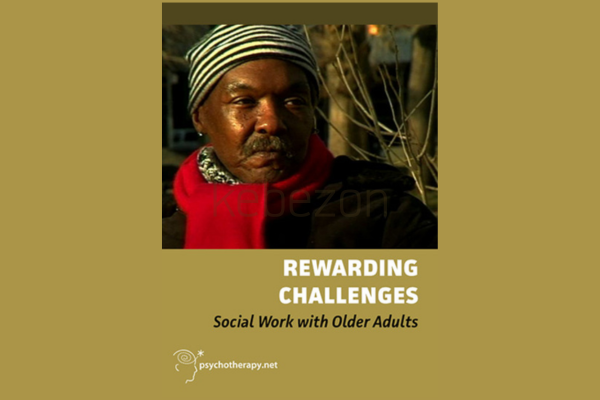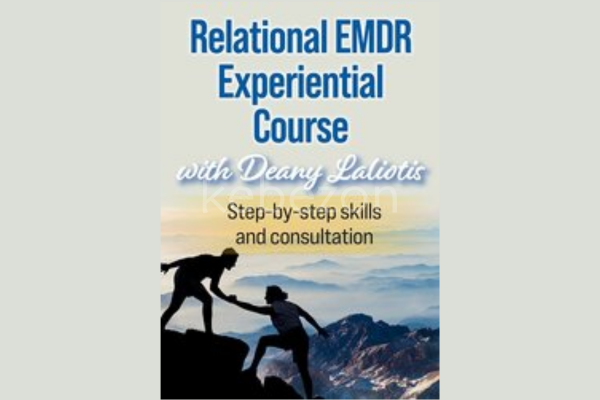-
×
 The Saulis Dating Guide (PDF) - A Comprehensive Guide on How to Consistently Get Laid on The First Date - Andrius Saulis
1 × 15,00 $
The Saulis Dating Guide (PDF) - A Comprehensive Guide on How to Consistently Get Laid on The First Date - Andrius Saulis
1 × 15,00 $ -
×
 Conversation Power: Communication for Business and Personal Success with James Fleet
1 × 5,00 $
Conversation Power: Communication for Business and Personal Success with James Fleet
1 × 5,00 $ -
×
 Dating for Women - How to Spot and Avoid Pickup Artists
1 × 5,00 $
Dating for Women - How to Spot and Avoid Pickup Artists
1 × 5,00 $ -
×
 Canva Mastery Bible – Your Blueprint to Amazing Canva designs - The Canva Wizard
1 × 5,00 $
Canva Mastery Bible – Your Blueprint to Amazing Canva designs - The Canva Wizard
1 × 5,00 $ -
×
 Digital Banking Fundamentals with Esteban Santana - CFI Education
1 × 15,00 $
Digital Banking Fundamentals with Esteban Santana - CFI Education
1 × 15,00 $ -
×
 The Climber’s Theory
1 × 5,00 $
The Climber’s Theory
1 × 5,00 $
Rewarding Challenges: Social Work with Older Adults with Caroline Rosenthal Gelman & Carol Tosone
39,00 $ Original price was: 39,00 $.8,00 $Current price is: 8,00 $.
SKU: KEB. 467594OPxwtl5
Category: Psychology
Tags: Carol Tosone, Caroline Rosenthal Gelman, Rewarding Challenges, Social Work with Older Adults
Download Rewarding Challenges: Social Work with Older Adults with Caroline Rosenthal Gelman & Carol Tosone, check content proof here:

Rewarding challenges: Social work with older adults
In an era where the significance of gerontological social work is ever-increasing, the book “Rewarding Challenges: Social Work with Older Adults,” authored by Caroline Rosenthal Gelman and Carol Tosone, stands as a beacon of knowledge for aspiring social workers, particularly MSW students. This insightful resource encompasses real-life vignettes that vividly capture the multifaceted experiences social workers face while supporting older adults.
Through engaging narratives, the authors effectively convey the importance of empathy, understanding, and skill in navigating the complexities of working with this demographic. The lessons from the book resonate not only within the academic realm but also in practical settings, illuminating the path toward cultivating a compassionate and effective social work practice.
Overview of the Vignettes
The educational program presented in “Rewarding Challenges” features two pivotal case vignettes that provide a glimpse into the lives of social work interns and the clients they serve. Each vignette is meticulously crafted to illustrate common obstacles social workers may encounter, thereby offering valuable insights and fostering a deeper understanding of the emotional landscapes that both clients and workers traverse.
Sarah’s Journey: Navigating Grief
The first vignette introduces us to Sarah, a first-year social work intern who finds herself grappling with the delicate dynamics of engaging Mr. Williams, an older gentleman mourning the loss of his wife. Initially hesitant and unsure, Sarah’s journey encapsulates the nuances of building rapport with clients who may be apprehensive about expressing their feelings or accepting help. Here, the authors articulate a profound truth: the process of connecting with older adults demands a balance of sensitivity and assertiveness.
Sarah’s internal conflict serves as a reflective mirror for any social worker in training, illuminating the struggle between respecting a client’s autonomy and recognizing their needs. As Sarah learns to listen, observe, and adapt her approach, readers gain insight into the essential qualities of resilience and empathy. The vignette emphasizes that social work is not merely a technical practice but an art that requires a deep emotional engagement and a commitment to understanding the lived experiences of older individuals.
Ben’s Support: Caring for Caregivers
In stark contrast, the second vignette revolves around Ben, a second-year intern who supports Patricia, a caregiver overwhelmed by her mother’s Alzheimer’s disease. Here, the narrative starkly reflects the crucial role social workers play in supporting caregivers, who often exist in the shadows of the caregiving dynamic. This vignette crafts a more expansive view of social work, highlighting the importance of recognizing the needs of not just the elderly clients but also their caregivers.
Ben’s interactions with Patricia provide salient insights into practical aspects of gerontological social work, such as resource provision for respite services and emotional support for the caregiver’s journey. The discussions between Ben and his supervisor unravel the layers of professional anxiety and emotional fatigue that can accompany such work. As Ben navigates these hurdles, he embodies the notion that social work fosters resilience not only in clients but also within practitioners, encouraging them to seek support and guidance during challenging times.
Challenges and Rewards in Gerontological Social Work
The essence of social work with older adults is beautifully captured in the contrasting yet complementary experiences of Sarah and Ben. While both interns face significant challenges, the narratives underline a pivotal truth: engaging with older adults often leads to profound rewards that extend beyond professional growth.
Emotional and Professional Growth
The challenges depicted Sarah’s uncertainty and Ben’s overwhelming compassion mirror the real-life experiences of many in the field. The emotional toll of working with vulnerable populations, particularly the elderly, can be significant. However, as the authors elucidate, these experiences also enrich social workers’ skills and emotional intelligence. By navigating the intricacies of grief, loss, and caregiver burnout, social workers cultivate a deeper understanding of human resilience and the capacity for healing.
Normalizing Conversations about Aging
Moreover, “Rewarding Challenges” serves to normalize the often-avoided conversations around aging and death. By presenting relatable scenarios, the authors not only equip future social workers with practical tools but also encourage them to foster open dialogues regarding aging and end-of-life concerns. This normalization is vital, as it paves the way for a society more attuned to the needs and voices of older adults.
Competencies Essential for Effective Engagement
In the pursuit of adequate preparation for social work with older adults, Gelman and Tosone emphasize essential competencies that can serve as a guideline for both education and practice. These competencies fall within several key areas, forming a holistic framework for understanding and engaging with older clients effectively.
1. Empathy and Active Listening
At the core of effective social work is the ability to actively listen and embody empathy. Engaging with older adults requires social workers to develop a keen sensitivity to nonverbal cues and emotional undertones. This ability not only fosters trust but also helps in accurately assessing the needs of the client.
2. Knowledge of Resources and Services
Furthermore, an in-depth understanding of available resources greatly enhances a social worker’s efficacy. Familiarity with various community services, such as respite care, counseling, and support groups, is crucial for advocating effectively on behalf of clients and their caregivers. As illustrated by Ben’s experience, knowledge empowers social workers to provide practical solutions to common challenges faced by older adults and their families.
3. Ethical Decision-Making
Finally, mastering ethical decision-making is fundamental. Social workers must navigate complex moral landscapes, often balancing clients’ wants against their needs. This skill is vital in respecting client autonomy while ensuring their safety and well-being. The vignettes highlight that ethical dilemmas are an inherent aspect of practice, demanding a reflective and principled approach.
From the insights garnered in “Rewarding Challenges,” it is evident that these competencies not only prepare social workers for the professional hurdles they may face but also instill a sense of responsibility and commitment to social justice.
Conclusion
“Rewarding Challenges: Social Work with Older Adults” is a profound exploration of the realities faced by social workers engaging with older clients. Through the illustrative experiences of Sarah and Ben, Gelman and Tosone illuminate the intricate balance of challenges and rewards inherent in this essential field. As future social work professionals delve into the nuanced narratives of this book, they will emerge not only more capable but also more compassionate ready to advocate for and with the older adults they will serve.
The journey through the challenges presented in the narratives highlights the indispensable role social workers play in enriching the lives of older adults, affirming the notion that while the road may be laden with difficulties, the rewards are immeasurable. Indeed, the work of social workers in this domain is a testimony to the enduring power of human connection, empathy, and hope.

Frequently Asked Questions:
Business Model Innovation:
Embrace the concept of a legitimate business! Our strategy revolves around organizing group buys where participants collectively share the costs. The pooled funds are used to purchase popular courses, which we then offer to individuals with limited financial resources. While the authors of these courses might have concerns, our clients appreciate the affordability and accessibility we provide.
The Legal Landscape:
The legality of our activities is a gray area. Although we don’t have explicit permission from the course authors to resell the material, there’s a technical nuance involved. The course authors did not outline specific restrictions on resale when the courses were purchased. This legal nuance presents both an opportunity for us and a benefit for those seeking affordable access.
Quality Assurance: Addressing the Core Issue
When it comes to quality, purchasing a course directly from the sale page ensures that all materials and resources are identical to those obtained through traditional channels.
However, we set ourselves apart by offering more than just personal research and resale. It’s important to understand that we are not the official providers of these courses, which means that certain premium services are not included in our offering:
- There are no scheduled coaching calls or sessions with the author.
- Access to the author’s private Facebook group or web portal is not available.
- Membership in the author’s private forum is not included.
- There is no direct email support from the author or their team.
We operate independently with the aim of making courses more affordable by excluding the additional services offered through official channels. We greatly appreciate your understanding of our unique approach.
Be the first to review “Rewarding Challenges: Social Work with Older Adults with Caroline Rosenthal Gelman & Carol Tosone” Cancel reply
You must be logged in to post a review.
Related products
Psychology











Reviews
There are no reviews yet.